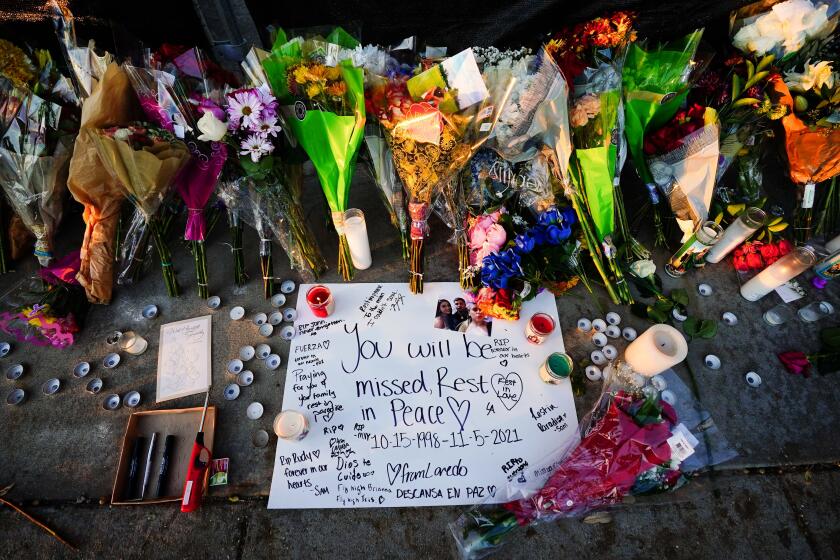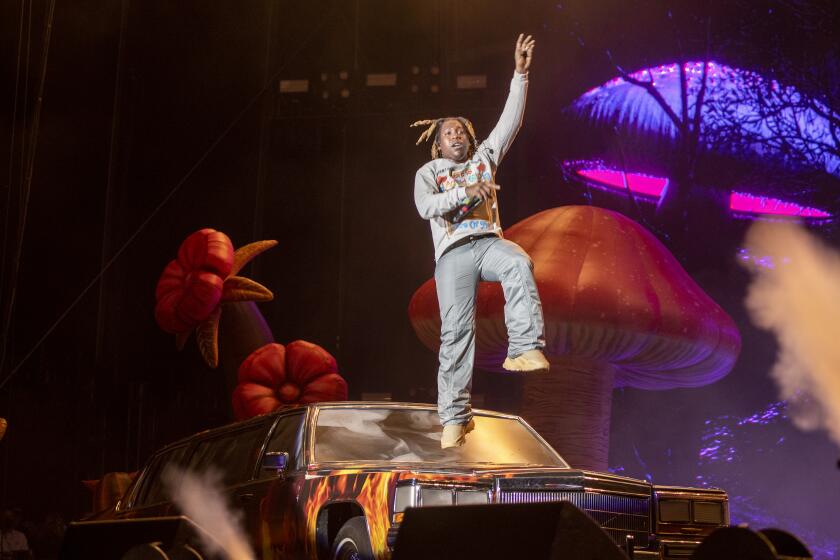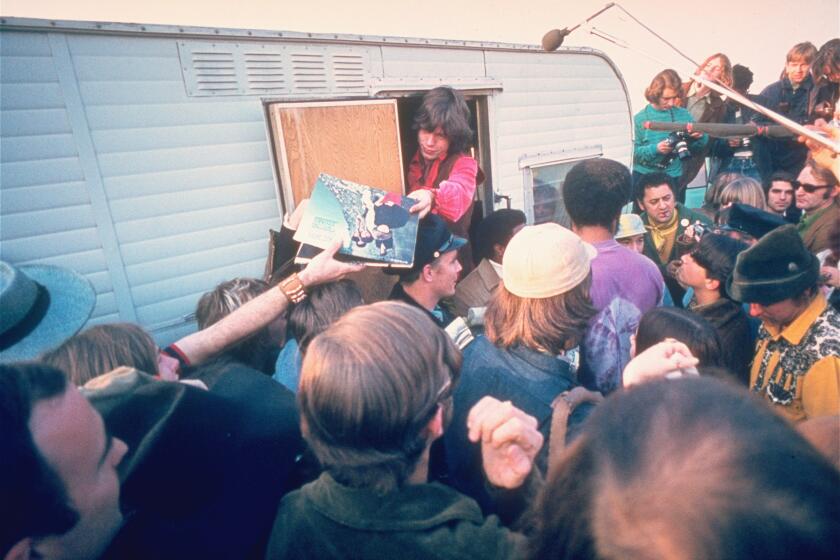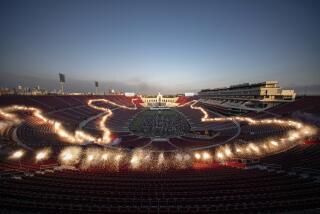A festival paramedic reflects on the Astroworld tragedy
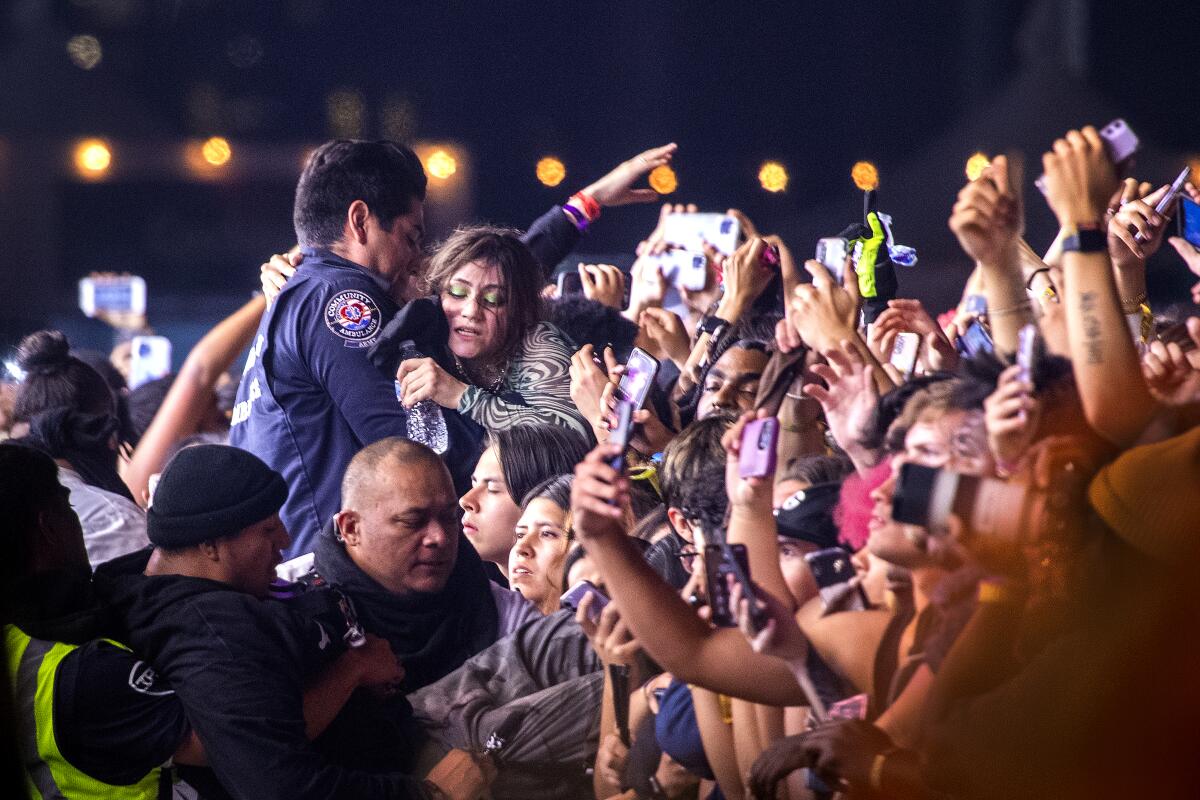
- Share via
In the 2020 book “Molly, Mushrooms & Mayhem: Stories from Inside the Music Festival Medical Tent,” Jim Bollenbacher recounts the first time he witnessed the effects of psychedelic mushrooms. He was working as a paramedic at an electronic dance music festival when he was called by security to check on a young man crawling on the floor, picking imaginary things off the ground and out of the air.
Back in the medical tent, the young man had a 10-minute conversation about the day’s events with someone who wasn’t there. “He both asked and answered a number of questions,” wrote Bollenbacher, a former attorney and corporate leader who became a paramedic after retiring.
It’s one of the tamer behind-the-scenes stories he recounts in the collection, featuring other tales from fellow EMTs and paramedics. These also include some darker moments, including deaths.
Authorities continue to investigate the deadly crowd surge at the Astroworld Festival as lawsuits against Travis Scott and Live Nation pile up.
When Bollenbacher heard about the crowd surge at Houston’s Astroworld Festival that killed 10 people, including a 9-year-old boy, he was devastated. “The impact of a death on the medical staff is palpable,” he writes. “I can’t begin to imagine the effect on the families.”
Bollenbacher spoke with The Times about the travails of being a music festival paramedic and what we can learn about the Astroworld tragedy. The conversation has been edited for length and clarity.
Why did you decide to write “Molly, Mushrooms & Mayhem”?
It was a couple of years ago. My sister and niece were in town and we were talking about the things I had seen. I always get a reaction from people when I tell some stories. I went to bed that night and I couldn’t sleep, and the idea just came to me that I should write down these stories and turn them into a book. The first thing that came to me was the title. I got up at 2 o’clock in the morning, came downstairs, sat at the kitchen table and started making an outline.
What was your initial reaction when you heard about the Astroworld tragedy?
It’s heartbreaking. I have worked at festivals where people have died and it is devastating to the medical staff. I can’t imagine what this medical staff went through. And of course the families; your loved one goes out to an event to have fun, listen to music, party with friends, and something like this happens.
I have been at a festival where something similar happened on a much, much smaller scale. It was Lollapalooza in Chicago, I believe the summer of 2018. I don’t remember who was performing. I was on a roving medical golf cart, but there was a push of the crowd and I got called to a medical tent to help. When I showed up there were probably two dozen people who were trying to get oxygen. They were hyperventilating. They were panicked. What had happened was — they were in front of the crowd, pushed up against the fence. Fortunately security did a great job of getting these people out. It was a scary, scary scene.
Everybody was fine. It was not even remotely on the same scale as Astroworld, but I saw the fear in those young ladies’ eyes. I remember one scared young woman, whom I just sat next to and talked with to try to calm her down, to let her know she was safe. It struck me because later, as the festival was ending that night, she saw me as she was walking by and she made a point of stopping and thanking me.
Lollapalooza happens at Grant Park, which is enormous. I think there are eight stages and it’s several miles long and wide. Crowd surges are a very real concern. The way it’s arranged, they have security in the front and through the aisles that they create in the pens. It’s something the producers of these festivals, in my experience, are very concerned about and take steps to prevent.
The Houston MC was Travis Scott’s heir apparent. Now, he has to stand on his own.
How did the surge at Lollapalooza remind you of Astroworld?
From what I’ve read, that’s exactly what happened at Astroworld. People kept taking one step forward, one step forward, one step forward, and pretty soon the people at the front couldn’t take steps forward. All of a sudden you’re compressed to the point where you literally can’t breathe. When you can’t breathe, your heart can’t get oxygen and eventually it stops. What’s hard is that you can’t get to those people. Sometimes people will literally lift them up and surf them across the top of the crowd to get them to security.
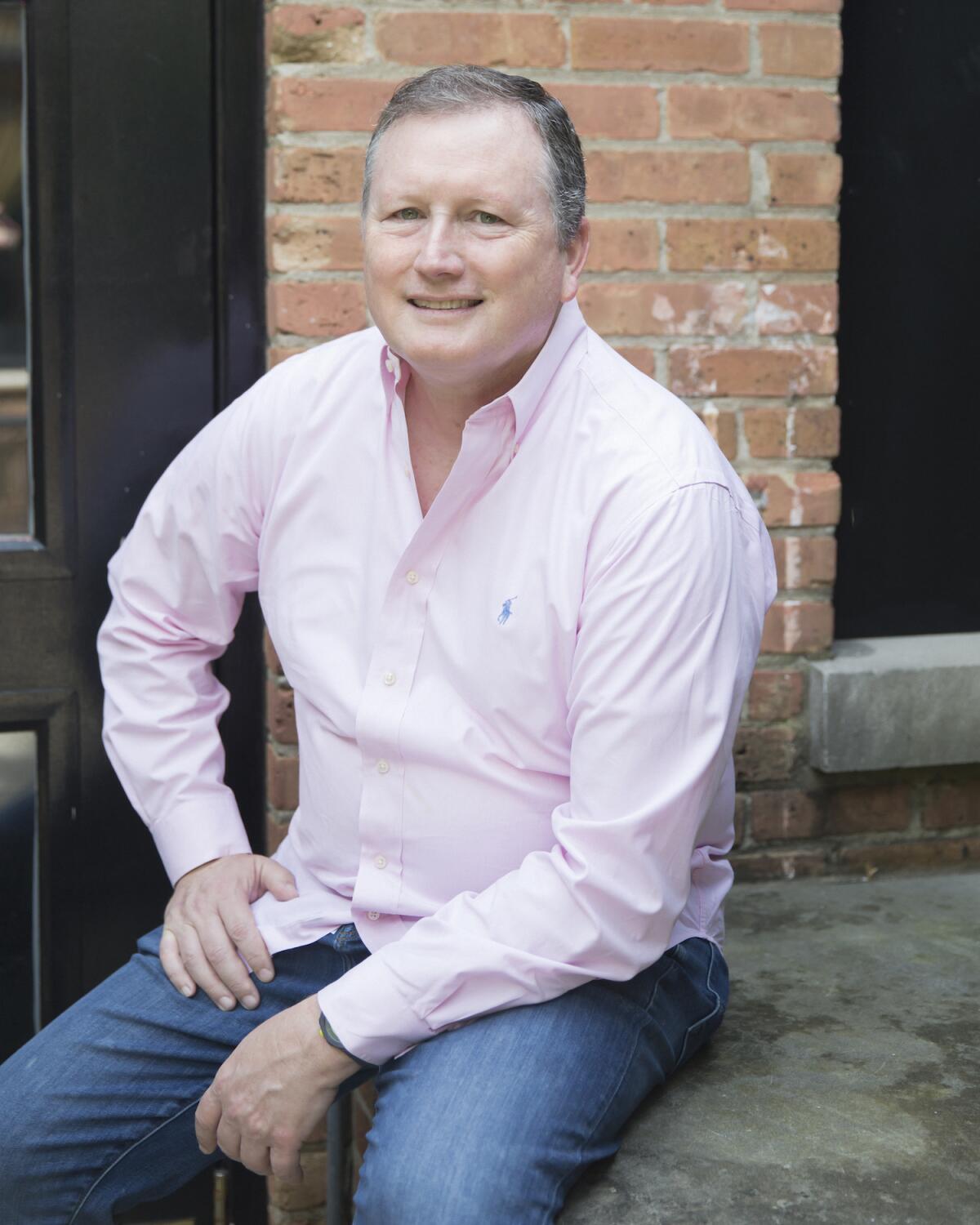
There’s a story in the book from early in my career, where I got called into a crowd for a woman who was having seizures. Because it was so loud, I had a very hard time communicating with dispatch. Eventually I just gave up. Fortunately, she was fine, but when you have 20,000 or 30,000 people around a stage and they’re only able to see their little space, they’re not aware of what’s happening elsewhere in that crowd.
After the Astroworld tragedy, I remembered something that happened at a Lollapalooza in 2017. The group Run the Jewels came on before the headlining band, The Killers. Before they started, they said two things to the crowd that really impressed me. The first thing was, “If we see any guys touching women inappropriately, we’re going to stop the concert and call you out.” And the second thing was, “Everybody right now, take two steps back.” I thought about that again after the Astroworld situation, how prescient it was of Run the Jewels to understand that this can happen.
Eight people were killed as Travis Scott performed in Houston. California has had similar tragedies
What do you hope people learn from Astroworld? And how can they stay safe, specifically when they find themselves in a crowd surge?
I think the best thing they can do is to not find themselves in that crowd surge. You have to be aware of your surroundings. If you start to feel uncomfortable, you need to immediately get yourself out of the situation. I know that’s easy to say and hard to do, but I hope that with these tragedies, people become more aware of the possibility. The 2017 Route 91 Harvest Festival in Las Vegas and this event in Houston are really tragic. The moral for me is: Recognize that it’s possible for things to go wrong, and when you get that feeling that you’re not comfortable, get out.
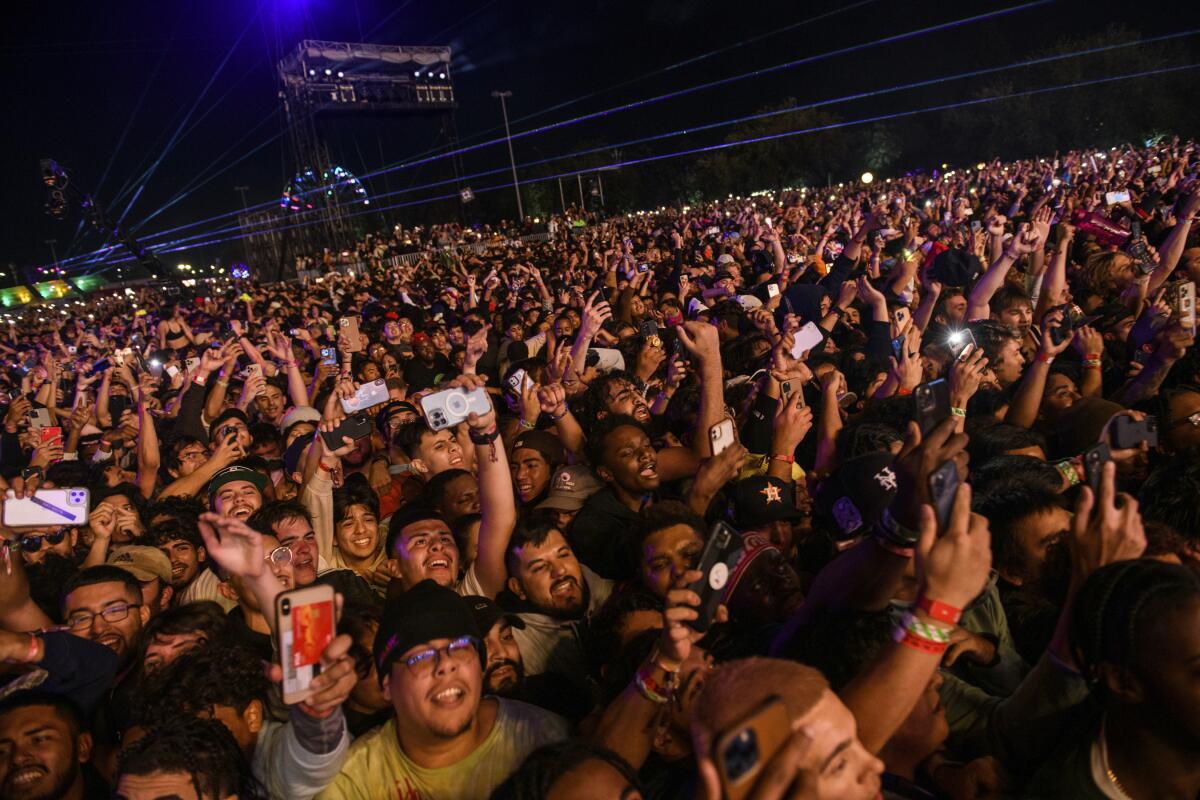
If someone in a dense crowd needs medical assistance and can’t find help right away, what can they do?
The events I’ve worked at have had an abundance of security. I have seen people work themselves to the front, the side or the back to get to security or asked to be passed. I think that’s an effective way of doing it.
There are a lot more security people than there are medical people. You can’t have the paramedics everywhere. Most of the time the medical people are not in the middle of the crowd. The key is finding somebody with a T-shirt that says “Security” or “Medical” or “Production.” Those people all know how to find and get medical help.
Who do you think is responsible for ensuring people’s safety at these events?
I think we’re all responsible. The producers have a responsibility, and in my experience they take that very seriously. I say in my book that I think the producers care very much about the safety of participants. If I didn’t feel that way I wouldn’t work with them. I think the artists, to a certain extent, should be aware. I don’t know what they can see or what they can hear, but I think we all have our own responsibility to just be aware and recognize that we are not alone.
The on-site investigator at the deadly 1979 Who concert said that festival seating and crowd density may have contributed to the Astroworld tragedy.
What else do you want people to know about music festivals and your experiences working in them?
I think when something like this happens, it is obviously tragic for the families. But the first responders are also impacted by these events and I don’t think we should forget that. These are folks working for very little money and spending their days taking care of concertgoers. Without them these events wouldn’t happen. I think something like this, where you had young people die, would be devastating to me.
All profits from Bollenbacher’s book are being donated to the First Responders Children’s Foundation.
More to Read
Sign up for our Book Club newsletter
Get the latest news, events and more from the Los Angeles Times Book Club, and help us get L.A. reading and talking.
You may occasionally receive promotional content from the Los Angeles Times.
